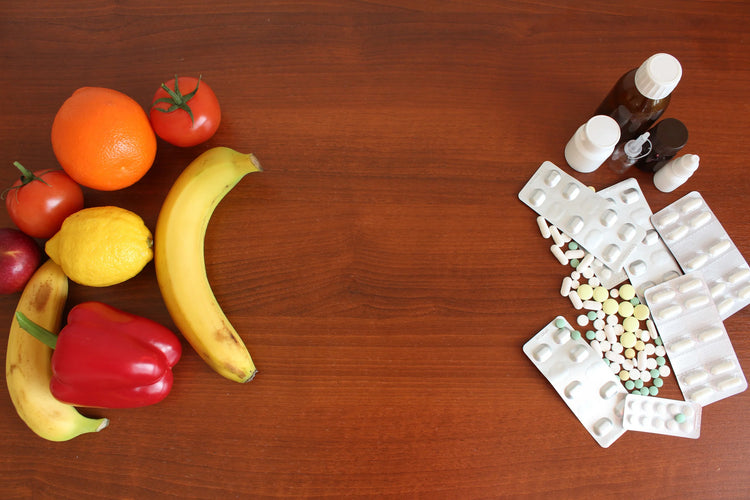Immunity refers to the body's ability to resist and combat infections and diseases caused by various pathogens, including bacteria, viruses, fungi, and parasites. The acquisition of immunity can occur through different means, either naturally or artificially.
Natural immunity occurs when the body unintentionally contacts a disease-causing agent, whereas artificial immunity arises through deliberate exposure.
In this article, we will compare natural and artificial immunity, identifying their respective advantages and disadvantages and examining the key factors to consider.
Natural vs Artificial Immunity: A Comparative Analysis

Explore the intricacies of natural and artificial immunity through a meticulous analysis. Discover the key distinctions, embrace the advantages, and unravel the essential factors to consider. Delve deep into this captivating examination.
Natural Immunity
Natural immunity is the kind of immunity a person gets naturally, like when they catch a sickness or from their mother when they are born or breastfed. There are two types of natural immunity: natural active immunity and natural passive immunity.
- Natural active immunity happens when someone gets sick, and their body makes antibodies and memory cells to fight the sickness and prevent future infections. For instance, if someone recovers from chickenpox, they will have natural active immunity against the virus that caused it.
- Natural immunity happens when antibodies are transferred from another source, like a baby getting them from their mother through the placenta or breast milk. These antibodies temporarily protect against diseases until the baby's immune system strengthens. Newborns inherit natural passive immunity to certain diseases their mother has encountered or been vaccinated for.

Artificial Immunity
Artificial immunity is a type of immunity people get on purpose by being exposed to a disease or its parts, like through a vaccine or getting antibodies from someone else. There are two types of artificial immunity: active and passive.
- Immunity is active when someone receives a vaccine that has weakened or killed germs or their parts. The vaccine makes the immune system build antibodies and memory cells without making the person sick. For example, someone who gets the measles vaccine will have active immunity against the measles virus.
- Passive immunity occurs when antibodies are transferred from one individual to another, providing temporary protection against specific diseases or toxins. For instance, a snakebite victim may require an injection of antivenom-containing antibodies to counteract the snake venom.
Key Differences Between Natural and Artificial Immunity

The main differences in immunity between natural and artificial are:
- Natural immunity happens when you come into contact with a disease, not on purpose. Artificial immunity occurs when you intentionally expose yourself to a disease or part of a disease.
- Natural immunity lasts longer than artificial immunity because it activates the immune system and creates memory cells. Artificial immunity might need booster shots or repeated doses because it only involves a part of the immune system and may not create long-lasting memory cells.
- Natural immunity can lead to severe complications or even death from the disease itself. Artificial immunity may cause mild side effects like pain, swelling, fever, allergies, or rare vaccine or antibody injection reactions.
Advantages of Natural Immunity
Natural immunity has several benefits:
- It offers lasting protection against many diseases without needing extra treatments.
- It makes the immune system stronger and more diverse by exposing it to different germs and substances that cause disease.
- It could protect against similar diseases caused by related germs or variants.
Advantages of Artificial Immunity
Artificial immunity has several advantages:
- It helps prevent or lessen the impact of many diseases without causing their symptoms or complications.
- It safeguards vulnerable individuals who cannot naturally develop immunity due to age, health conditions, or genetics.
- It plays a role in herd immunity, a community's protection against an epidemic when enough people are immunized or immune to it.

Natural vs. Artificial Immunity: Factors to Consider
The debate between natural and artificial immunity has no definitive answer. Both have pros and cons depending on several factors:
- Disease type and severity: Some diseases are more dangerous and can have serious consequences, making artificial immunity preferable. For example, polio can cause paralysis or death, so vaccination is recommended as a preventive measure.
- Vaccine availability and effectiveness: Some diseases have effective vaccines, while others do not. Natural immunity might offer better protection in cases where vaccines are less effective or unavailable. For instance, natural immunity provides cross-protection against different strains of the flu.
- Personal and social preferences: Some people prefer natural immunity due to their beliefs or experiences. Others trust in vaccines and find them more convenient for protection.
Ultimately, the choice between natural and artificial immunity depends on individual preferences and circumstances.
Conclusion
In conclusion, immunity is the body's resistance to and ability to fight infections and diseases. Depending on disease type, severity, and personal preferences, it can be acquired naturally or artificially. Immunity is crucial in controlling diseases by reducing incidence and prevalence, preventing outbreaks, protecting vulnerable groups, and eradicating diseases.
It's important to note that immunity is not a substitute for individual protection. Taking personal precautions, getting vaccinated, practicing good hygiene, and following health authorities' advice are still necessary to protect oneself and others from diseases.

